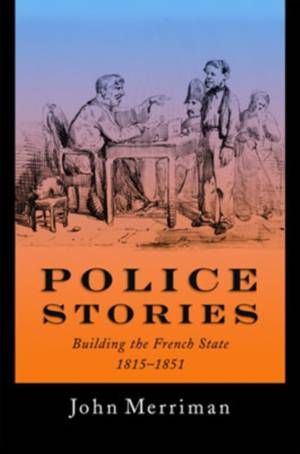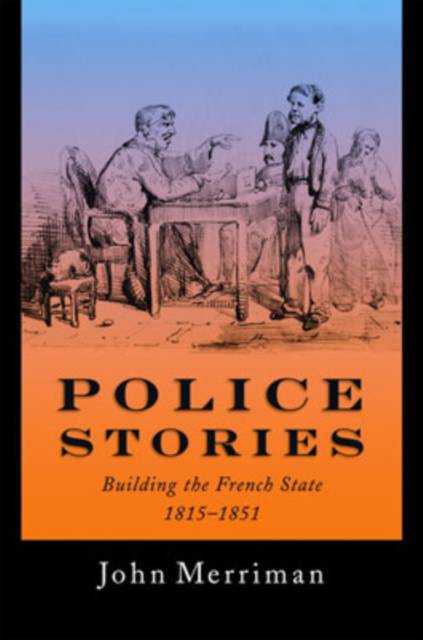
Bedankt voor het vertrouwen het afgelopen jaar! Om jou te bedanken bieden we GRATIS verzending (in België) aan op alles gedurende de hele maand januari.
- Afhalen na 1 uur in een winkel met voorraad
- In januari gratis thuislevering in België
- Ruim aanbod met 7 miljoen producten
Bedankt voor het vertrouwen het afgelopen jaar! Om jou te bedanken bieden we GRATIS verzending (in België) aan op alles gedurende de hele maand januari.
- Afhalen na 1 uur in een winkel met voorraad
- In januari gratis thuislevering in België
- Ruim aanbod met 7 miljoen producten
Zoeken
€ 241,95
+ 483 punten
Omschrijving
In the first half of nineteenth century France was characterized by extraordinary regional and linguistic diversity but the state increasingly became a central force in the lives of its citizens. One way that it did so was through its police force, which, as John Merriman details in this work, developed into a modern profession during this period. He describes the careers of policemen, how they were hired, the difficulties they faced and successes they enjoyed. Through the lives of these men, he shows how the political issues of the day, as well as incompetence and imprudence, could bring a sudden, inglorious end to their work in the police. His study of these men underscores how the police helped the state affirm its primacy, winning the allegiance, or at least the obedience, of the French people. Reconstructing events from police reports, Merriman chronicles the street life of Frances's growing towns and cities through the prism of the people who enforced its laws and maintained the peace. Police were on the scene to investigate suicides and deaths; break up workers' strikes and fights among brawling drunkards; adjudicate in cases of merchants cheating customers; deal with cases of missing persons; and control political militants. He also looks at their frequent encounters while policing outsiders, such as itinerant workers, beggars, bands of traveling thieves, prostitutes, and abandoned children. Based on a wealth of primary research from over seventy archives, Merriman offers an evocative Tour de France seen through the eyes of provincial policemen and the people they encountered on their rounds.
Specificaties
Betrokkenen
- Auteur(s):
- Uitgeverij:
Inhoud
- Aantal bladzijden:
- 264
- Taal:
- Engels
Eigenschappen
- Productcode (EAN):
- 9780195072532
- Verschijningsdatum:
- 24/11/2005
- Uitvoering:
- Hardcover
- Formaat:
- Genaaid
- Afmetingen:
- 165 mm x 238 mm
- Gewicht:
- 517 g

Alleen bij Standaard Boekhandel
+ 483 punten op je klantenkaart van Standaard Boekhandel
Beoordelingen
We publiceren alleen reviews die voldoen aan de voorwaarden voor reviews. Bekijk onze voorwaarden voor reviews.









